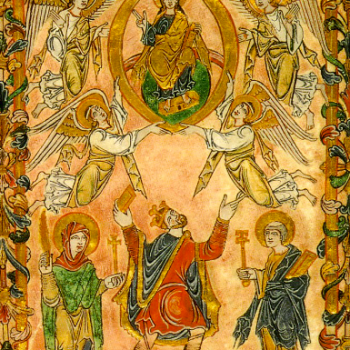It is, simply put, easier and less dangerous to our freedom-loving selves to be individually spiritual than it is to give up any of our autonomy and enter into the life of a religious community. But religious life is also the source, as Williams goes on to say, of gratitude, obedience, joy, yielding, relational intimacy. (92) As one might expect from the leader of millions of the world's Christians, the Archbishop locates much of the world's good in the teaching and practice of Christianity.
He also, however, believes ardently in conversation. He has convened multi-faith gatherings, and calls for the State to permit and encourage pluralism (an irony, since he is the head of England's established state church). Each of us, he notes, who take on a faithful religious identity, whether Christian, Hindu, Muslim, Jain, or whatever, "inhabit and accept an identity that is believed to be in tune with how the universe most deeply is, or with what God intends or desires . . . To belong in this way is to be a particular kind of human being." (134) We choose these ways of being, because we see something sacred and useful in them.
It is the interaction of these particular kinds of human beings that offers hope for the State and for the world in what Archbishop Williams calls "a fruitful context for an interreligious encounter that does not compromise convictions, but is also ready to envisage growth and change." (135) And he gives us in this book a beautiful and faithful example of how one can be consciously and determinedly religious—and still seek to love and learn from others.





